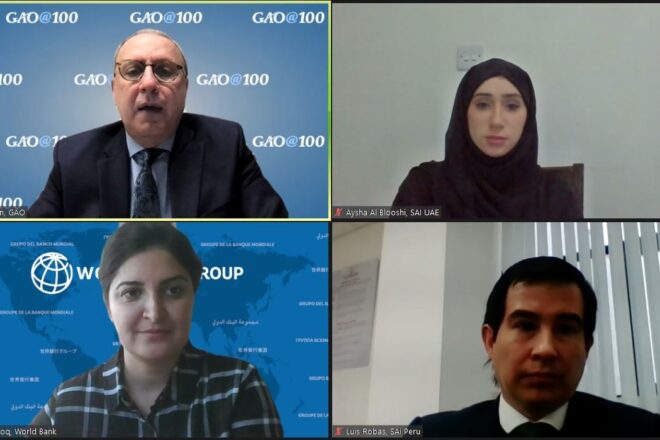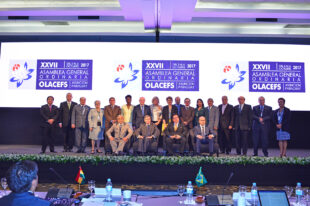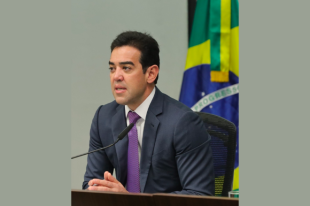With governments around the world spending massive sums to fight the COVID-19 pandemic, Supreme Audit Institutions (SAIs) have a key role to play in detecting and preventing fraud. To share knowledge and best practices, the U.S. Government Accountability Office (GAO) held an international webinar on September 15, 2021, on “Auditing for Fraud: Experiences, Tools and Techniques, and Looking Ahead.”
The virtual event, which attracted approximately 260 attendees, was moderated by Seto Bagdoyan, Director of Audits in GAO’s Forensic Audits and Investigative Service, and featured three expert panelists:
- Aysha Mohammed Al Blooshi, Senior Auditor, SAI United Arab Emirates. SAI UAE is working with the United Nations Office on Drugs and Crime (UNODC) to promote greater engagement of SAIs in the implementation of the UN Convention against Corruption.
- Zohra Farooq Nooryar, Senior Financial Management Specialist, Governance Global Practice, World Bank. The World Bank has been at the forefront of efforts to address the challenges presented by the pandemic.
- Luis Alonso Robas Sanchez, Manager for Control of Megaprojects, Office of the Comptroller General of the Republic of Peru. SAI Peru is a leader in using data-driven approaches in auditing for fraud.
Among the discussion’s key takeaways was that emerging technologies present SAIs with both opportunities for more effective fraud detection and increased risks. Information technology (IT) infrastructure can enable SAIs to conduct real-time remote audits of public sector programs, especially those prone to corruption. And advanced data analytics software, artificial intelligence, and machine-learning algorithms can help SAIs quickly identify anomalies in the data in government systems.
However, Ms. Al Blooshi and Mr. Robas agreed that just having these IT tools is not enough. SAIs need to manage the risks that accompany these technologies through a robust regulatory framework, internal controls, human resources capacity, and audit guidelines.
The panelists emphasized that SAIs can also use new forms of IT not only to detect fraud, but also to help prevent it in the first place, by enhancing engagement with members of parliament, government officials, civil society organizations, and the public. Improving communication with these external stakeholders and giving them the opportunity to provide feedback on the audit process are key elements in ensuring transparency and accountability in the expenditure of COVID-19 funds.
The panelists recognized that not all SAIs have the internal capacity to investigate fraud, and some may need to turn to external experts, especially for IT assistance. Moreover, not all SAIs have a mandate to investigate fraud and corruption.
Ms. Nooryar advised SAIs without such mandates to focus on their countries’ overall public financial management (PFM) system, exercise professional skepticism regarding the risk for fraud, carefully examine the systems agencies have in place to act on potential cases of fraud, and work closely with investigative agencies to ensure follow-up on irregularities.






